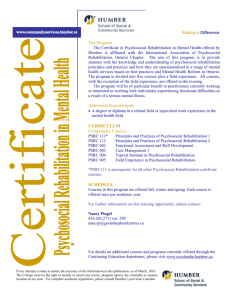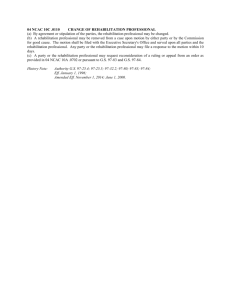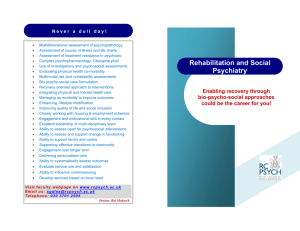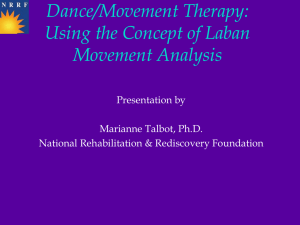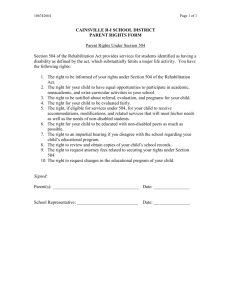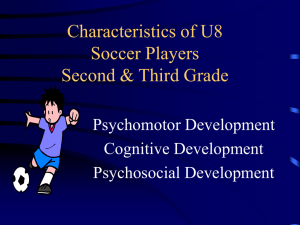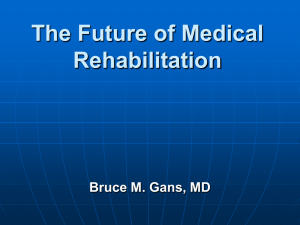“Express Roles and Responsibilities”
advertisement
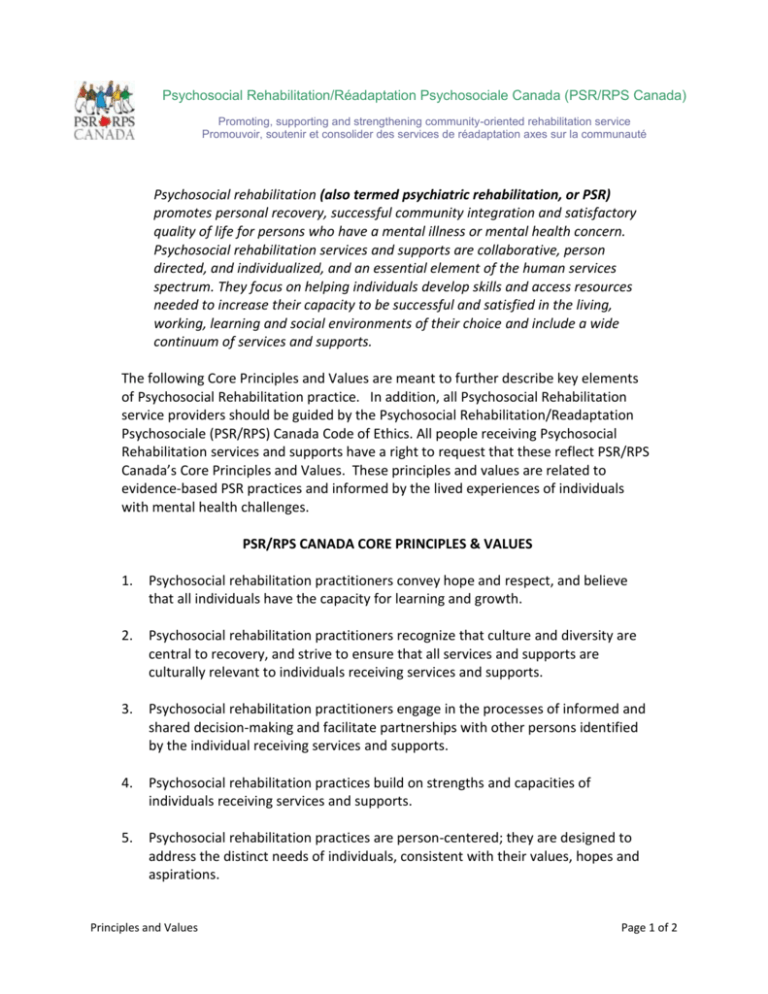
Psychosocial Rehabilitation/Réadaptation Psychosociale Canada (PSR/RPS Canada) Promoting, supporting and strengthening community-oriented rehabilitation service Promouvoir, soutenir et consolider des services de réadaptation axes sur la communauté Psychosocial rehabilitation (also termed psychiatric rehabilitation, or PSR) promotes personal recovery, successful community integration and satisfactory quality of life for persons who have a mental illness or mental health concern. Psychosocial rehabilitation services and supports are collaborative, person directed, and individualized, and an essential element of the human services spectrum. They focus on helping individuals develop skills and access resources needed to increase their capacity to be successful and satisfied in the living, working, learning and social environments of their choice and include a wide continuum of services and supports. The following Core Principles and Values are meant to further describe key elements of Psychosocial Rehabilitation practice. In addition, all Psychosocial Rehabilitation service providers should be guided by the Psychosocial Rehabilitation/Readaptation Psychosociale (PSR/RPS) Canada Code of Ethics. All people receiving Psychosocial Rehabilitation services and supports have a right to request that these reflect PSR/RPS Canada’s Core Principles and Values. These principles and values are related to evidence-based PSR practices and informed by the lived experiences of individuals with mental health challenges. PSR/RPS CANADA CORE PRINCIPLES & VALUES 1. Psychosocial rehabilitation practitioners convey hope and respect, and believe that all individuals have the capacity for learning and growth. 2. Psychosocial rehabilitation practitioners recognize that culture and diversity are central to recovery, and strive to ensure that all services and supports are culturally relevant to individuals receiving services and supports. 3. Psychosocial rehabilitation practitioners engage in the processes of informed and shared decision-making and facilitate partnerships with other persons identified by the individual receiving services and supports. 4. Psychosocial rehabilitation practices build on strengths and capacities of individuals receiving services and supports. 5. Psychosocial rehabilitation practices are person-centered; they are designed to address the distinct needs of individuals, consistent with their values, hopes and aspirations. Principles and Values Page 1 of 2 6. Psychosocial rehabilitation practices support full integration of people in recovery into their communities, where they can exercise their rights of citizenship, accept the responsibilities and explore the opportunities that come with being a member of a community and a larger society. 7. Psychosocial rehabilitation practices promote self-determination and empowerment. All individuals have the right to make their own decisions, including decisions about the types of services and supports they receive. 8. Psychosocial rehabilitation practices facilitate the development of personal support networks by utilizing natural supports within communities, family members as defined by the individual, peer support initiatives, and self- and mutual-help groups. 9. Psychosocial rehabilitation practices strive to help individuals improve the quality of all aspects of their lives, including social, occupational, educational, residential, intellectual, spiritual and financial. 10. Psychosocial rehabilitation practices promote health and wellness, encouraging individuals to develop and use individualized wellness plans. 11. Psychosocial rehabilitation services and supports emphasize evidence-based, promising, and emerging best practices that produce outcomes congruent with personal recovery. Psychosocial rehabilitation programs include program evaluation and continuous quality improvement that actively involve persons receiving services and supports. 12. Psychosocial rehabilitation services and supports must be readily accessible to all individuals whenever they need them; these services and supports should be well coordinated and integrated as needed with other psychiatric, medical, and holistic treatments and practices. Principles and Values Page 2 of 2
